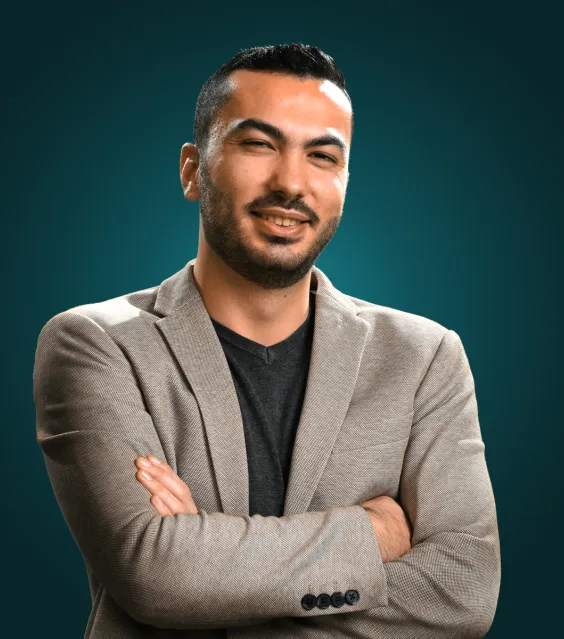Alumni
Back to alumni
Wadah Malaeb

“None of this would be even possible without SOS12’s support,” says the young Lebanese Wadah Malaeb while listing his achievements in the field of science and engineering.
Even during his senior year as a Mechanical Engineering student at the American University of Beirut, Wadah’s thirst for knowledge was still left unsatisfied. Thus, he decided to take a course on tissue engineering, where he had a revelation. He was fascinated by the massive potential of the biomedical field.
Project & Impact
Developing a new medical drug is a monumental undertaking, consuming vast amounts of time and money through countless experiments and trials. According to Wadah, a lot of the cost comes from attempting to replicate real human conditions in which to test the drugs.
The budding researcher experienced this first-hand while working on a breast cancer project, where he spent six months studying the parameters of human tissue growth. His findings relied heavily on observing the natural behavior of cells, something which is only possible through a perfect replica of the environment inside the human body. Scarred by the experience, he explored academic literature to see if he could find a new solution.
Enter the Ductal Organoid-on-a-Chip! Based on growing organ chip technology, the Chip provides an environment where cells can grow and reorganize into tissues as if they were in the human body, providing the perfect atmosphere to conduct massively, efficiently, and affordably conduct drug testing.
Aftermath of SoS
During Stars-Of-Science, Wadah thought this was the most challenging experience he would ever face. Back then, he ignored the enormous support that he was getting. Post-stars-of-science, reality kicked in as he describes. It took him months to figure out the conditions surrounding him and plan forward. He decided to start forming a team and building his company.
After Stars-Of-Science, and between 2021 and 2022 Wadah was very achieving. He incorporated his company in the US, Lebanon, UK & Norway. He also expanded his team to 18 people, operating in Lebanon and the UK. Armed with confidence and perseverance, he proceeded his work and funded a Biological R&D collaboration with the faculty of Medicine at the American University of Beirut (AUB) and the University of Bradford. Additionally, he established a manufacturing facility in Lebanon that is now in operation and filed national patents in 12 countries/districts for the organ-on-chip device.
He invented a new device named the “Human-on-chip operating system,” which can connect different micro-organs, each grown on a single chip, such as kidney, liver, brain, and others, creating an entire living body functional model. This device can automatically control and measure all organ-on-chip devices in real-time, making more accurate experiments. He then filed an international patent for this device.
The company works today on developing artificial intelligence (AI) software that can control the “Human-on-chip operating system” device that can optimize the tissue and organ models grown inside the chip, making it more resembling human body tissues. In addition, AI aims to give better predictions of the effect of drugs on the human body.
Wadah got agreements with different clinical trials to contract research organizations (CROs) to sell them. By Q4 2024, his on-chip drug testing services for the drugs were in development before testing on humans. Wadah is currently in conversation with big pharmaceutical companies to establish a potential collaboration.
Wadah is proceeding with his achievements. He started working on new inventions. He is also planning to expand his company in the UK, where he is establishing two labs for engineering and biology, respectively, to sell the on-chip testing services from there. He also plans to file patents for the “Human-on-chip Operating system” in 12 new countries and file US provisional patents for the AI software in development. This will allow him to start offering basic testing to pharma firms.
For Wadah, the ultimate purpose in life is the one you create by finding your passion. He thinks that one should search and always surround themselves with the people that will let them grow, learn, think critically and openly, and adapt to changes. Also, for him questioning and self-critic are vital to know your gaps and not build anything based on those voids.
Last update June 2023
